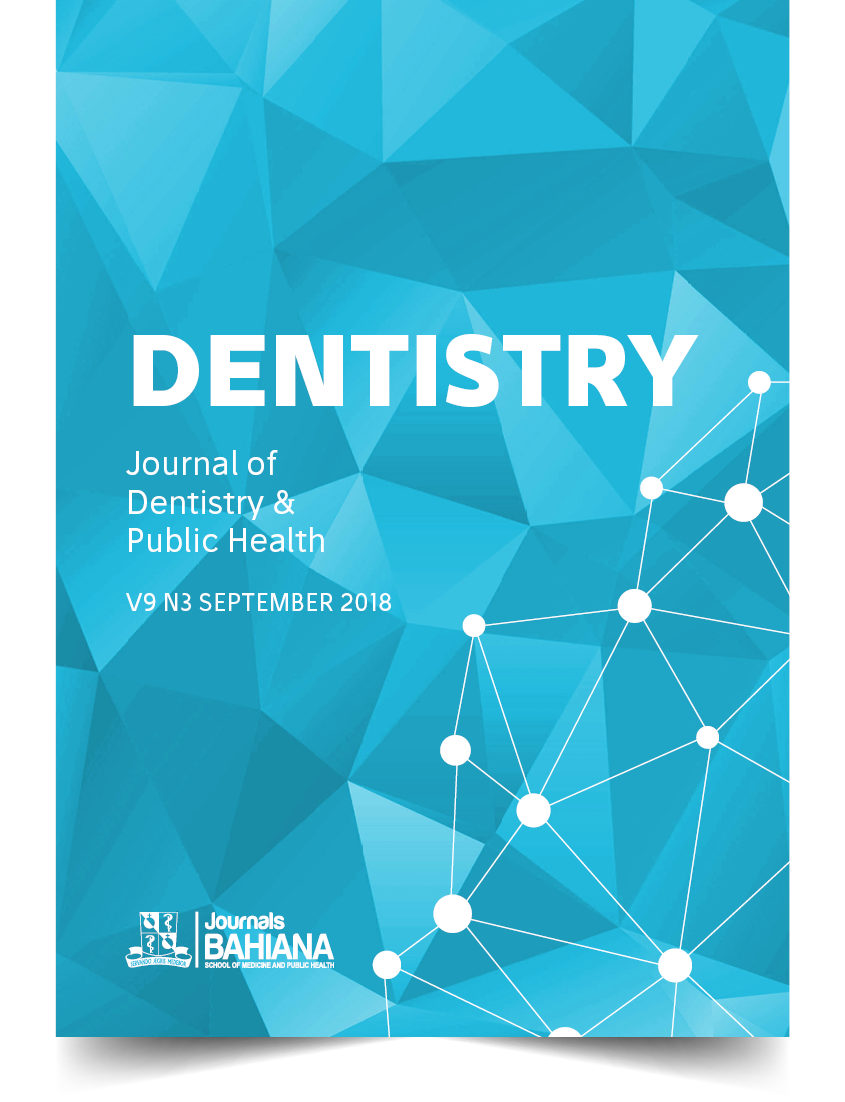Avaliação da prescrição de antimicrobianos para tratamento de urgência endodôntica
DOI:
https://doi.org/10.17267/2596-3368dentistry.v9i3.2042Palavras-chave:
Prescrição antimicrobianos. EndodontiaResumo
Introdução: O uso de medicamentos em Odontologia tem por finalidade cessar a dor e prevenir a instalação ou a disseminação do processo infeccioso e inflamatório do paciente. Objetivo: Avaliar a prescrição de antimicrobianos para os casos mais comuns de urgência endodôntica. Materiais e métodos: Trata-se de um estudo de corte transversal, com amostra constituida de 209 cirurgiões-dentistas atuantes na cidade de Vitória da Conquista. Utilizou-se um questionário que abordou o tratamento de urgência endodôntica e informações sobre o uso de medicamentos nesses casos. Os dados foram tabulados e analisados no IBM SPPP Statistics para Windows, e comparados pelo teste qui-quadrado e teste exato de Fisher. Resultados: A maior parte da amostra possui atividade profissional entre 5 e 10 anos. Destes, 49,3% responderam que para casos de pulpite aguda indicaria pulpectomia associada à medicação intracanal. A pulpectomia associada a analgésicos e antibióticos para casos de periodontite apical aguda seria indicada por 35,9%. Nos casos de tratamento de abcesso apical agudo, 70,8% indicariam drenagem e antibióticos. Ainda, 56% dos entrevistados responderam que o tratamento do canal radicular seria o mais indicado para dentes com lesão periapical. Conclusão: A prescrição de antimicrobianos por parte dos profissionais entrevistados diante de casos de urgências endodônticas foi elevada, ocorrendo



